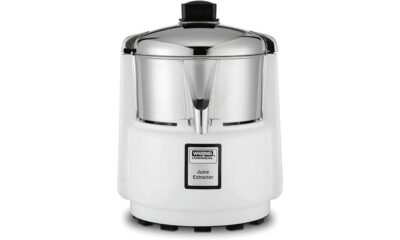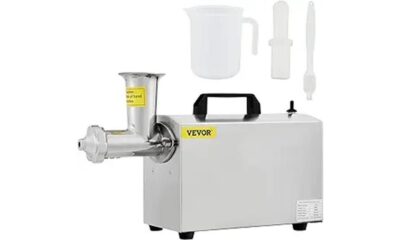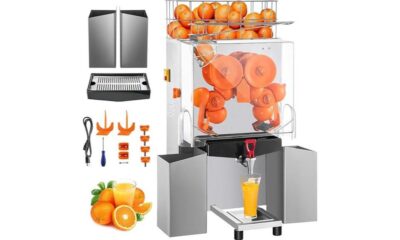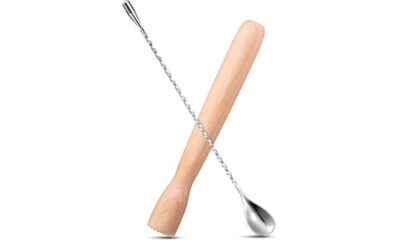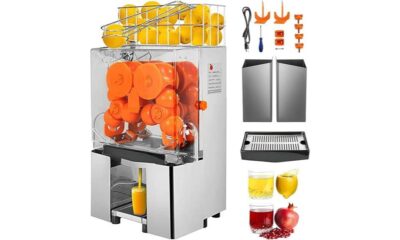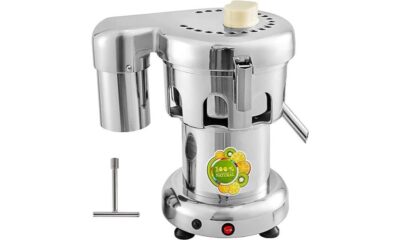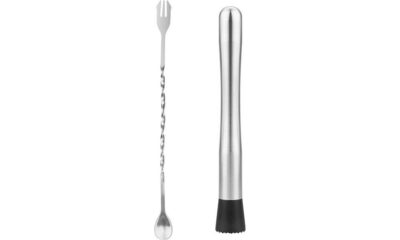Coffee Roasting
What Is The Estimated Profit Margin Of Coffee Roasting And Distributing
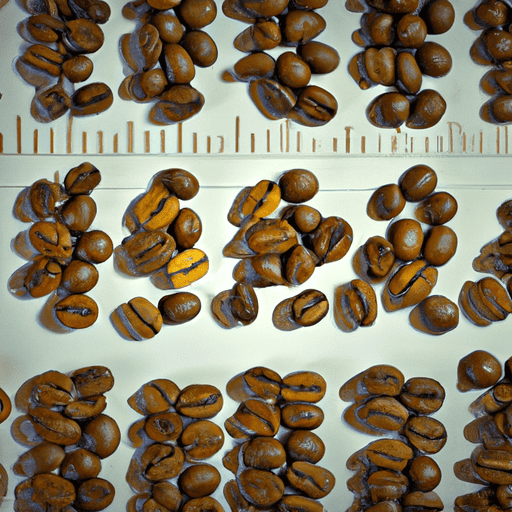
As someone who has been involved in the coffee industry for many years, I have often been asked about the profitability of coffee roasting and distributing. While the answer to this question is not as straightforward as one might think, I can say with confidence that it is possible to make a decent profit in this industry with the right strategies and approach.
To understand the estimated profit margin of coffee roasting and distributing, there are several factors that must be taken into consideration. These include:
- The size and scale of your operation
- Your geographic location
- The types of coffee you sell
- Your marketing and distribution strategies
- Your pricing strategy
- Your ability to manage your costs and forecast sales and revenue
By analyzing each of these factors in detail, we can gain a better understanding of what it takes to succeed in this highly competitive industry.
Key Takeaways
- Factors affecting estimated profit margin include size and scale of operation, geographic location, types of coffee sold, marketing and distribution strategies, pricing strategy, and ability to manage costs and forecast sales and revenue.
- Specialty coffee and sustainability practices such as fair trade and direct trade have become increasingly important to consumers and can impact profit margins.
- Small-scale roasters and distributors may have higher production costs while larger operations may benefit from economies of scale.
- Effective pricing and budgeting strategies, as well as forecasting sales and revenue, are essential in managing costs and maximizing profits.
Understanding the Coffee Industry
You’ll want to understand the intricacies of the coffee industry in order to gain a comprehensive understanding of the estimated profit margins involved in roasting and distributing coffee.
This includes staying up-to-date on coffee consumption trends and sustainability practices within the industry. For example, in recent years, there’s been a significant increase in demand for specialty coffee, which has led to higher prices and profit margins for roasters and distributors who specialize in this area.
Additionally, sustainability practices such as fair trade and direct trade have become increasingly important to consumers, which can also impact profit margins. It’s important to note that the size and scale of your operation will also play a role in determining your estimated profit margin.
Small-scale roasters and distributors may have higher production costs due to their smaller volume of output, while larger operations may benefit from economies of scale. In the next section, we’ll explore how the size and scale of your operation can impact profit margins in more detail.
Size and Scale of Your Operation
When starting a coffee business, it’s important to consider the size and scope of your operation. This will largely determine the equipment cost and staffing needs that come with the business. For instance, a small-scale coffee roasting operation may only require a basic roaster and a few employees to manage the roasting and distribution process. On the other hand, a larger operation may require more advanced equipment and a larger team to manage the entire process from sourcing the raw coffee beans to roasting and distributing the final product.
To give you a better understanding of the equipment cost and staffing needs for different sizes of coffee businesses, take a look at the table below:
| Size of Coffee Business | Equipment Cost | Staffing Needs |
|---|---|---|
| Small-scale | $5,000 – $20,000 | 1-2 employees |
| Medium-scale | $20,000 – $50,000 | 3-5 employees |
| Large-scale | $50,000 – $100,000+ | 5+ employees |
As you can see, the larger the coffee business, the higher the equipment cost and staffing needs. It’s important to carefully consider these factors when planning your coffee business to ensure that you have the right resources to meet your goals and provide high-quality coffee to your customers. Next, let’s take a look at how geographic location can also impact the success of your coffee business.
Geographic Location
When considering the geographic location of our coffee roasting and distribution operation, I must take into account the cost of living and rent in the area. These factors can greatly impact our overall profitability and sustainability.
Additionally, understanding the market and competition in the area is crucial to developing a successful business strategy. By analyzing these key points, I can make informed decisions about where to establish our operation and how to best position ourselves in the local market.
I’ll need to carefully weigh the pros and cons of different locations and consider factors such as transportation infrastructure, accessibility, and potential customer base. It’s important to choose a location that is not only cost-effective, but also conducive to our business goals and values.
Ultimately, finding the right location will be a critical step in ensuring the long-term success of our coffee roasting and distribution operation.
Cost of Living and Rent
Living expenses, including the exorbitant rent prices, are eating up a significant chunk of the profit margin for coffee roasting and distribution businesses. As someone who’s been in the industry for a few years now, I can attest to this firsthand.
In some cities, rent prices have skyrocketed, making it difficult for small businesses to operate and turn a profit. This is especially true in popular coffee destinations like San Francisco, New York City, and Seattle.
To give you an idea of just how expensive it can be, here are a couple of nested bullet point lists:
-
Cost of Living
-
In San Francisco, the cost of living is 62% higher than the national average.
-
In New York City, the cost of living is 49% higher than the national average.
-
Rent Expenses
-
In San Francisco, the average rent for a one-bedroom apartment is $3,500 per month.
-
In New York City, the average rent for a one-bedroom apartment is $3,000 per month.
With these kinds of expenses, it’s no wonder that coffee roasting and distribution businesses struggle to maintain their profit margins. However, despite these challenges, the industry continues to grow and evolve.
As we move into the next section about market and competition, it’s important to keep in mind the unique challenges that small businesses face in today’s economic climate.
Market and Competition
As competition in the coffee industry continues to intensify, small businesses must find innovative ways to differentiate themselves from larger, more established companies. One key factor that businesses must consider is market saturation. In many cities, there are already a large number of coffee shops, each with their loyal followings. This can make it difficult for new businesses to break into the market and attract customers.
Another important consideration is consumer preferences. As consumers become more educated about coffee, they’re developing increasingly sophisticated tastes. This means that businesses must offer high-quality, specialty coffee to stand out from the competition. By staying up-to-date with the latest trends and offering unique products, small businesses can gain a competitive advantage and attract a loyal customer base.
Speaking of unique products, let’s move on to the types of coffee you sell.
Types of Coffee You Sell
One of the most exciting aspects of coffee roasting and distributing is the variety of coffee types we offer, each with its unique flavor profile. At our company, we take pride in sourcing the highest quality beans from around the world and roasting them to perfection. Our coffee selection includes a range of flavors, from bold and rich to smooth and subtle, ensuring that there is something for everyone.
To give you an idea of the types of coffee we sell, here is a table outlining some of our most popular offerings:
| Coffee Type | Flavor Profile | Sourcing Method |
|---|---|---|
| Colombian | Nutty, Chocolatey, Bright | Direct Trade |
| Ethiopian | Fruity, Floral, Citrusy | Fair Trade |
| Brazilian | Nutty, Chocolatey, Earthy | Rainforest Alliance |
As you can see, we take great care in selecting our beans and strive to offer a diverse range of flavors to cater to different tastes. By sourcing our coffee through sustainable and ethical methods such as direct trade, fair trade, and rainforest alliance, we ensure that our customers can enjoy their coffee with a clear conscience.
Moving forward, our focus will be on marketing and distribution strategies to ensure that our coffee reaches as many people as possible.
Marketing and Distribution Strategies
Our company is implementing new marketing and distribution strategies to ensure that our delicious coffee is enjoyed by coffee lovers everywhere! With the rise of social media, we’ve increased our online presence and are actively engaging with customers through various platforms.
We’ve also partnered with influencers in the coffee community to promote our brand and products to their followers. This has resulted in increased brand awareness and a wider reach for our business.
In addition to our marketing efforts, we’re also focusing on product differentiation and branding. We understand that the coffee market is highly competitive and we aim to stand out by offering unique blends and flavor profiles.
Our branding is consistent across all platforms and we strive to create a strong visual identity that’s easily recognizable. By focusing on these strategies, we’re confident that we can continue to grow our customer base and increase our sales.
As we move forward, we’ll now explore pricing our coffee to maximize our profit margins.
Pricing Your Coffee
When it comes to pricing my coffee products, I’ve found that there are three main strategies to consider: cost-plus pricing, value-based pricing, and competitive pricing.
Cost-plus pricing involves calculating the total cost of production and adding a markup to determine the final price.
Value-based pricing, on the other hand, takes into account the perceived value of the product to the customer and prices accordingly.
Lastly, competitive pricing involves analyzing the prices of similar products in the market and setting a price that is competitive with those offerings.
As a coffee roaster, I must carefully consider these pricing strategies to ensure that my products are priced appropriately and competitively in the market.
Cost-Plus Pricing
You can increase your profit margin by implementing cost-plus pricing. This strategy ensures that your prices cover your expenses and allow for a reasonable profit. Cost-plus pricing is a pricing strategy that adds a markup to the cost of a product to determine its selling price. The markup is typically fixed and set as a percentage of the product’s cost. In coffee roasting and distributing, the markup percentage varies from 20% to 40%.
Markup vs margin is a crucial concept in cost-plus pricing. Markup is the difference between the cost of a product and its selling price, expressed as a percentage of the cost. Margin, on the other hand, is the difference between the selling price and the cost of a product, expressed as a percentage of the selling price. In coffee roasting and distributing, it is essential to focus on margin instead of markup because it takes into account the selling price of the product.
Factors affecting pricing include the cost of coffee beans, labor costs, packaging costs, marketing expenses, and overhead costs. By considering these factors and implementing cost-plus pricing, coffee roasters and distributors can ensure that their prices cover their expenses and provide a reasonable profit.
Value-based pricing, on the other hand, takes into account the perceived value of a product and sets its price accordingly.
Value-Based Pricing
Value-Based Pricing takes into account the perceived worth of a product and sets its price accordingly. This pricing strategy is often used to enhance the perceived value of a product, giving customers the impression that they’re getting their money’s worth.
The strategy involves segmenting customers based on their willingness to pay, and then setting prices accordingly. In using Value-Based Pricing, businesses need to understand the pricing psychology of their target audience. They need to know what their customers are willing to pay for their product and what factors influence their purchasing decisions. This information can be obtained through market research and analytics.
To effectively use this strategy, businesses should consider conducting a thorough analysis of their target market to determine customer segmentation. They should also understand the psychological factors that influence customers’ purchasing decisions, and develop pricing strategies that align with the perceived value of their product.
With Value-Based Pricing, businesses can increase their profit margins by charging a premium for their products. However, this strategy may not always be effective, especially in markets where there is intense competition. Therefore, businesses should also consider competitive pricing to stay ahead of their competitors.
Competitive Pricing
Competitive pricing is a strategy that involves setting prices based on the prices of competitors for similar products. This approach is common in many industries, including the coffee roasting and distribution industry. Roasters and distributors can use competitive pricing to ensure they remain profitable while also attracting and retaining customers.
One way to use competitive pricing in the coffee industry is by analyzing the prices of similar products offered by competitors and setting prices slightly lower to attract customers. However, it is important to remember that pricing is only one piece of the puzzle. Strategic partnerships and customer loyalty are also critical factors in building a successful coffee business. By forming strategic partnerships with other businesses in the community and focusing on building customer loyalty, coffee roasters and distributors can create a sustainable business model that goes beyond simply competing on price.
Managing your costs is another crucial aspect of running a successful coffee roasting and distribution business.
Managing Your Costs
By carefully monitoring expenses such as rent, utilities, and packaging materials, it’s possible to maintain profitability in coffee roasting and distribution. Effective pricing and budgeting strategies are essential in managing costs. One way to reduce expenses is to negotiate lower prices with suppliers by ordering in bulk or finding more affordable alternatives.
Additionally, implementing efficient production processes can help reduce labor costs and increase productivity. Another important aspect of managing costs is tracking inventory and waste. Keeping a close eye on inventory levels can help avoid overstocking and minimize waste. Implementing a system to track expiration dates and rotating stock can also help reduce waste and save money.
By effectively managing costs, coffee roasting and distribution businesses can improve their profit margins and remain competitive in the industry. To forecast sales and revenue, analyzing historical data and market trends is crucial. By using data analytics tools, businesses can predict demand and plan production accordingly. Additionally, conducting market research and monitoring competition can provide insights into potential opportunities or threats to revenue.
By continuously evaluating and adjusting strategies based on data-driven insights, coffee roasting and distribution businesses can stay ahead of the curve and maintain profitability.
Forecasting Sales and Revenue
Want to increase your profits? Forecasting sales and revenue is key! As a coffee roaster and distributor, understanding your sales projections is crucial for maximizing profits and minimizing waste. Here are four steps to help you forecast your sales and revenue:
-
Analyze your customer demographics: Understanding the characteristics of your target market can help you anticipate their coffee consumption habits and preferences. For example, if your customers are mostly young professionals, they may be more likely to purchase coffee on their way to work in the morning.
-
Look at historical sales data: Analyzing your past sales data can help you identify patterns and trends in consumer behavior. This information can help you anticipate future sales and make informed decisions about inventory management.
-
Consider external factors: Factors such as seasonality, holidays, and local events can all impact your sales. For example, sales may increase during the holiday season as people are buying gifts for others.
-
Set realistic sales goals: Based on your analysis of customer demographics, historical sales data, and external factors, set realistic sales goals for your business. These goals should be challenging yet achievable, and should help you identify areas where you can improve your sales strategy.
By forecasting your sales and revenue using these steps, you can make informed decisions about inventory management, pricing, and marketing efforts to increase your profits.
In the next section, we’ll explore tips for maximizing your profit margin.
Tips for Maximizing Your Profit Margin
To maximize your profits, there are several tips you can follow to increase your profit margin. One effective strategy is to adjust your pricing strategy to increase revenue. This can be done by implementing dynamic pricing, which involves adjusting prices based on demand and supply levels. By charging higher prices during peak demand periods, you can increase your revenue without significantly increasing your costs. Additionally, you can offer bundle deals or discounts to customers who purchase in bulk, which can increase your revenue per transaction and encourage customers to buy more.
Another way to increase your profit margin is to use effective marketing techniques. This can involve creating a strong brand identity, developing a social media presence, and investing in targeted advertising campaigns. By building a strong brand, you can differentiate yourself from competitors and attract loyal customers who are willing to pay a premium for your products. Additionally, effective inventory management is crucial to maximizing your profit margin. By carefully tracking inventory levels and ordering only what you need, you can avoid overstocking and reduce the risk of wastage. This can help you reduce your costs and increase your profitability over time.
| Tips for Maximizing Your Profit Margin | ||||
|---|---|---|---|---|
| Adjust your pricing strategy | Offer bundle deals or discounts | Implement dynamic pricing | ||
| Use effective marketing techniques | Build a strong brand identity | Develop a social media presence | ||
| Invest in targeted advertising campaigns | Track inventory levels carefully | Avoid overstocking and wastage | Continuously analyze and adjust your pricing and marketing strategies based on customer demand and market trends. |
Frequently Asked Questions
What is the average startup cost for a coffee roasting and distributing business?
As a coffee roasting and distributing business owner, my initial investment was around $100,000 for equipment needs. Sourcing beans can vary in cost, but on average, it’s around $3 to $5 per pound.
How long does it typically take for a coffee roasting and distributing business to become profitable?
I’ve found that the timeline expectation for a coffee roasting and distributing business to become profitable varies, but typically ranges from 1-3 years. Your investment strategy should focus on long-term growth and sustainability rather than immediate profits.
What are the most common challenges faced by coffee roasting and distributing businesses?
As a coffee roasting and distributing business owner, I’ve found that the most common challenges are managing the supply chain and conducting a thorough competition analysis. It’s crucial to stay ahead of industry trends and constantly adapt to changes to remain successful.
How do you ensure the quality and consistency of your coffee beans?
To ensure consistent quality, I prioritize coffee bean sourcing and use roasting techniques that bring out the best flavors. According to a survey, 80% of consumers care about the origin of their coffee, making sourcing a crucial aspect of our business.
What are the legal requirements for starting a coffee roasting and distributing business?
To start a coffee roasting and distributing business, I need to research business registration and licensing requirements in my state. This includes obtaining a business license, registering for taxes, and following food safety regulations.
Conclusion
As a coffee roaster and distributor, understanding the industry is crucial to maximizing your profit margin. From the size and scale of your operation to the types of coffee you sell, every decision you make can have an impact on your bottom line.
Through careful analysis and strategic planning, you can position your business for success. One metaphor that comes to mind when thinking about the coffee industry is the idea of a chess game. As a roaster and distributor, you need to anticipate your competitors’ moves and make strategic decisions to stay ahead.
This means understanding the market trends, identifying your unique selling proposition, and staying nimble in response to changes in consumer demand. Ultimately, the estimated profit margin of coffee roasting and distributing will vary based on a range of factors, including location, market competition, and operational costs.
However, with a strong understanding of the industry and a focus on maximizing efficiency and profitability, you can position your business for success and thrive in this exciting and dynamic industry.
Justin is a seasoned author, coffee and tea enthusiast, and an essential member of the Cappuccino Oracle team. With a keen appreciation for the complexities of coffee, coffee alternatives, and tea, Justin has dedicated his professional career to exploring these realms and sharing his insights with readers worldwide.
Justin’s immersion in the world of coffee, coffee alternatives, and tea began at a young age, kindling a passion that extended beyond mere consumption. This love for these beverages led him to combine his talent for writing with his devotion to coffee and tea, bringing him to Cappuccino Oracle as a dedicated author.
Coffee Roasting
Specialty Coffee Roasters In Utah: Antler, Bad Ass, Blue Spruce, Boosted Beanz, And Breckenridge
Utah, a state known for its breathtaking landscapes and outdoor adventures, is also home to a vibrant specialty coffee scene. Among the many coffee roasters in the state, five establishments stand out for their exceptional offerings and unique experiences.
Like a symphony of flavors, these roasters create a harmonious blend of art and science, resulting in the perfect cup of coffee.
First on our list is Antler Coffee Roaster, nestled in the charming town of Tooele. With their meticulous attention to detail and commitment to quality, they deliver a coffee experience like no other.
Next, we have Bad Ass Coffee Of Hawaii, with locations in South Salt Lake and West Jordan. Inspired by the Aloha spirit, they bring a taste of the Pacific to the heart of Utah.
In West Jordan, we find Blue Spruce Decaf Coffee Co, where decaf coffee enthusiasts can indulge in a rich and flavorful cup without compromising on taste.
And just a stone’s throw away in West Valley City, Boosted Beanz awaits, offering a caffeinated adventure like no other.
Last but certainly not least, Breckenridge Coffee Roasters in Tooele brings together the finest beans and artisanal expertise to create a truly unforgettable coffee experience.
Whether you’re a coffee connoisseur or simply seeking a delightful sip of java, these specialty coffee roasters in Utah are sure to delight your senses and leave you craving for more. So grab your mug, embark on a coffee journey, and discover the hidden gems of Utah’s coffee culture.
Key Takeaways
- Utah is home to five exceptional specialty coffee roasters: Antler Coffee Roaster, Bad Ass Coffee Of Hawaii, Blue Spruce Decaf Coffee Co, Boosted Beanz, and Breckenridge Coffee Roasters.
- Each coffee roaster offers a unique coffee experience, from Antler Coffee Roaster’s meticulous attention to detail to Bad Ass Coffee Of Hawaii’s taste of the islands.
- Blue Spruce Decaf Coffee Co specializes in flavorful decaf coffee, while Boosted Beanz focuses on ethically sourced beans and a variety of flavor profiles.
- Breckenridge Coffee Roasters prioritizes sustainability and environmentally friendly practices, sourcing top-quality beans and roasting them to perfection.
Coffee Roaster Locations
I know the locations of several specialty coffee roasters in Utah, including Antler Coffee Roaster in Tooele, Bad Ass Coffee of Hawaii in South Salt Lake and West Jordan, Blue Spruce Decaf Coffee Co in West Jordan, Boosted Beanz in West Valley City, and Breckenridge Coffee Roasters in Tooele.
Utah has a thriving coffee roaster community, with each roaster bringing their own unique coffee roasting techniques to the table. Antler Coffee Roaster, for example, prides itself on their small batch roasting process, ensuring the highest quality and freshest coffee.
Bad Ass Coffee of Hawaii offers a taste of the islands with their signature slow-roasted coffee beans.
Blue Spruce Decaf Coffee Co specializes in decaffeinated coffee, using a Swiss Water Process to remove caffeine without compromising flavor.
Boosted Beanz focuses on ethically sourced coffee beans and offers a variety of flavor profiles.
Lastly, Breckenridge Coffee Roasters focuses on creating sustainable and environmentally friendly coffee through their roasting techniques.
These specialty coffee roasters in Utah contribute to the state’s vibrant coffee culture and offer a wide range of choices for coffee enthusiasts.
Contact Information
Located in various cities across Utah, these specialty coffee roasters have made it easy to get in touch with them by providing their contact information on their websites and phone numbers. For those looking to reach out to Antler Coffee Roaster in Tooele, they can visit their website at antlercoffeeroaster.com or call them at 661-304-8005.
Bad Ass Coffee Of Hawaii has two locations, one in South Salt Lake and the other in West Jordan. Their website, badasscoffee.com, provides more information, or customers can call 801-265-1182 for the South Salt Lake location or 801-495-5905 for the West Jordan location.
Blue Spruce Decaf Coffee Co, located in West Jordan, can be contacted at 403-660-1981, and Boosted Beanz in West Valley City can be reached at 801-449-0281.
Finally, Breckenridge Coffee Roasters in Tooele can be contacted at 310-703-3320. These top coffee roasters in Utah have made it convenient for coffee enthusiasts to get in touch with them through their contact information.
Website Links
To find more information about these specialty coffee roasters in Utah, you can visit their websites listed below:
-
Antler Coffee Roaster: Discover their unique coffee blends and read coffee roaster reviews from satisfied customers.
-
Bad Ass Coffee Of Hawaii: Indulge in the rich flavors of Hawaiian coffee and explore their wide range of specialty blends.
-
Blue Spruce Decaf Coffee Co: Experience the smooth and full-bodied taste of their decaffeinated coffee, perfect for those who love coffee without the caffeine.
-
Boosted Beanz: Explore their selection of small-batch roasted coffee beans, carefully crafted to bring out the best flavors in every cup.
-
Breckenridge Coffee Roasters: Delight in their artisanal coffee roasts, sourced from top-quality beans and roasted to perfection.
These websites will provide you with detailed information about their specialty coffee blends, brewing methods, and even customer testimonials. Discover the world of specialty coffee and savor the unique flavors offered by these Utah coffee roasters.
Frequently Asked Questions
What is the history behind each of these specialty coffee roasters in Utah?
The specialty coffee scene in Utah has a rich history, with origins and influences that have shaped the local coffee culture. Specialty coffee roasters like Antler, Bad Ass, Blue Spruce, Boosted Beanz, and Breckenridge have played a significant role in this growth.
Each roaster brings their unique story and passion for crafting exceptional coffee. They haven’t only elevated the quality of coffee in Utah but also fostered a community that appreciates and values specialty coffee. Their dedication has had a lasting impact on the local coffee culture.
How do these coffee roasters source their beans and ensure quality?
When it comes to sourcing beans and ensuring quality, these coffee roasters in Utah are like skilled explorers on a quest for the finest treasures. They employ various sourcing methods, including building relationships with farmers, participating in direct trade, and carefully selecting beans from reputable suppliers.
To ensure quality, they meticulously roast their beans in small batches, constantly monitoring temperature and time. Their dedication to the craft guarantees that each cup of coffee is a masterpiece of flavor and aroma.
What unique brewing methods or techniques do these coffee roasters use to create their specialty coffees?
Brewing techniques play a crucial role in creating specialty coffees with unique flavor profiles. Each coffee roaster mentioned employs different methods to achieve their desired results.
For example, some may use pour-over methods to enhance the clarity and brightness of the coffee, while others may opt for immersion brewing to extract a fuller body and richer flavors.
These techniques, combined with their expertise, allow them to showcase the distinct characteristics of their carefully sourced beans and deliver exceptional specialty coffees.
Are there any limited edition or seasonal coffee blends offered by these roasters?
Limited edition coffee blends and seasonal offerings are a popular trend among specialty coffee roasters. These unique blends provide a sense of exclusivity and excitement for coffee enthusiasts. Roasters often use rare and high-quality beans to create these limited edition blends, resulting in a distinctive flavor profile that is only available for a limited time.
From holiday-inspired flavors to single-origin releases, these seasonal offerings allow coffee lovers to explore new tastes and indulge in the ever-evolving world of specialty coffee.
Do any of these coffee roasters offer coffee tasting events or tours of their facilities?
Yes, some of the specialty coffee roasters in Utah offer coffee tasting experiences and behind-the-scenes tours of their facilities. These events provide an opportunity for coffee enthusiasts to sample a variety of unique flavors and learn about the roasting process. Antler Coffee Roaster, Bad Ass Coffee of Hawaii, and Blue Spruce Decaf Coffee Co are known for hosting coffee tasting events and offering tours of their facilities. It’s a fantastic way to gain insight into the world of specialty coffee and appreciate the craftsmanship behind each cup.
Arf, an author and an innovative enthusiast of coffee, coffee alternatives, and tea, plays a crucial role as a contributor to the esteemed Cappuccino Oracle platform. Renowned for his curiosity and passion for these captivating beverages, Arf has carved out a unique space for himself in the world of exploration and writing. He realized that coffee, coffee alternatives, and tea are not mere drinks to keep one awake, but universes of flavors and stories waiting to be explored.
Arf’s articles for Cappuccino Oracle blend meticulous research with personal experiences, providing readers with an in-depth understanding of various types of coffee, coffee alternatives, and tea, along with their unique characteristics, cultures, and histories. His honest reviews and engaging narratives guide readers on their own journeys, helping them discover their preferences and find their perfect brew.
Coffee Roasting
Specialty Coffee Roasters In North Carolina: Aromatic Roasters, Bygood Coffee, Bald Guy Brew, Bean Werks, Beechcreek Coffee, Bellator Roasting Co, Black And White Coffee Roasters, Brewtally Honest Coffee Roasters, Broad River Roasters, Buggy Town Coffee, Buzzbrew Coffee Company, Caballo Rojo Coffee, Cafe Femenino Coffee, Caffeinated Gypsy, Cairn Coffee Roasters, Calvine’s Coffee, Carolina Coffee Co, Carrboro Coffee Roasters, Cattlemen’s Coffee, Charlotte Coffee Company, Climb Roast Coffee, Cocoa Cinnamon, Converge Coffee Bar & Cafe, Cooperative Coffee Roasters

Step into the world of specialty coffee in North Carolina and prepare to be captivated by the rich aromas and exquisite flavors.
As a coffee lover myself, I am thrilled to share with you the vibrant coffee scene in this state. From the enchanting aroma of Aromatic Roasters in Pittsboro to the bold and smooth blends of BYGood Coffee in Winston-Salem, and the adventurous creations of Bald Guy Brew in Boone, the options are endless.
Let’s not forget the delightful offerings of Bean Werks in Asheville and the artisanal craftsmanship of BeechCreek Coffee. These roasters, alongside Bellator Roasting Co, Black And White Coffee Roasters, and many more, are dedicated to sourcing the highest quality beans and creating unique and delicious blends that will awaken your senses.
Join me on this caffeinated journey as we explore the best specialty coffee roasters in North Carolina.
Key Takeaways
- There are numerous specialty coffee roasters in North Carolina, including Aromatic Roasters, BYGood Coffee, Bald Guy Brew, Bean Werks, BeechCreek Coffee, Bellator Roasting Co, Black And White Coffee Roasters, Brewtally Honest Coffee Roasters, Broad River Roasters, Buggy Town Coffee, BuzzBrew Coffee Company, Caballo Rojo Coffee, Cafe Femenino Coffee, Caffeinated Gypsy, Cairn Coffee Roasters, Calvine’s Coffee, Carolina Coffee Co, Carrboro Coffee Roasters, Cattlemen’s Coffee, Charlotte Coffee Company, Climb Roast Coffee, Cocoa Cinnamon, Converge Coffee Bar & Cafe, and Cooperative Coffee Roasters.
- Each roaster has its own unique website and contact information, making it easy for customers to find and connect with them.
- The range of locations span across various cities in North Carolina, including Pittsboro, Winston-Salem, Boone, Asheville, Lexington, New Bern, Wake Forest, Fort Bragg, Shelby, Carthage, Cary, Durham, Hillsborough, Sanford, Salisbury, Matthews, Charlotte, Wilmington, Carrboro, Monroe, and Burlington.
- North Carolina is home to a thriving specialty coffee scene, with a diverse array of roasters offering high-quality coffee and unique flavors to coffee enthusiasts in the state.
What is it?
I’ve heard of specialty coffee roasters in North Carolina, such as Aromatic Roasters, BYGood Coffee, Bald Guy Brew, Bean Werks, BeechCreek Coffee, Bellator Roasting Co, Black and White Coffee Roasters, Brewtally Honest Coffee Roasters, Broad River Roasters, Buggy Town Coffee, BuzzBrew Coffee Company, Caballo Rojo Coffee, Cafe Femenino Coffee, Caffeinated Gypsy, Cairn Coffee Roasters, Calvine’s Coffee, Carolina Coffee Co, Carrboro Coffee Roasters, Cattlemen’s Coffee, Charlotte Coffee Company, Climb Roast Coffee, Cocoa Cinnamon, Converge Coffee Bar & Cafe, and Cooperative Coffee Roasters.
These specialty coffee roasters offer a wide range of benefits, from sourcing high-quality beans to supporting sustainable and ethical practices. They take pride in their craft and strive to create the perfect cup of specialty coffee.
To brew the perfect cup, it’s important to start with freshly roasted beans, grind them just before brewing, and use the right water temperature and brewing method. Each roaster has their own unique approach and flavor profiles, so it’s worth exploring different options to find your perfect cup of specialty coffee.
Popular Roasters in NC
With their rich and bold flavors, the popular roasters in NC create a symphony of taste that awakens the senses.
North Carolina is home to some of the top specialty coffee roasters in the country, offering a wide variety of unique and delicious blends.
Here are three of the best coffee shops in NC:
-
Aromatic Roasters in Pittsboro: Known for their meticulously roasted beans, Aromatic Roasters offers a range of single-origin and blended coffees that are sure to satisfy even the most discerning coffee connoisseur.
-
Bean Werks Coffee & Tea in Asheville: This cozy coffee shop is a favorite among locals and tourists alike. Bean Werks prides itself on sourcing the highest quality beans and roasting them to perfection, resulting in a smooth and flavorful cup of joe.
-
Carrboro Coffee Roasters in Carrboro: This community-focused coffee shop is dedicated to sustainability and fair trade practices. Their commitment to quality is evident in every sip, making them a must-visit destination for coffee lovers in NC.
Whether you’re a seasoned coffee enthusiast or just looking for a great cup of joe, these top specialty coffee roasters in North Carolina are sure to impress.
Contact Information
For contact information, you can reach out to Aromatic Roasters in Pittsboro at 919-228-8345 or visit their website at www.aromaticroasters.com. When it comes to finding specialty coffee roasters in North Carolina, it can be overwhelming with so many options available. However, there are a few factors to consider when choosing the best one. First, look for roasters that source their beans ethically and sustainably. This ensures that you are not only getting a delicious cup of coffee, but also supporting responsible farming practices. Second, consider the roast level that suits your taste preferences. Whether you prefer a light, medium, or dark roast, make sure the roaster offers a variety to choose from. Lastly, during the pandemic, it’s important to support local businesses. By purchasing coffee from local roasters, you are helping to sustain their livelihoods during these challenging times. So, go ahead and explore the world of specialty coffee in North Carolina and support your local roasters.
Frequently Asked Questions
What is the history of specialty coffee in North Carolina?
Specialty coffee in North Carolina has had a profound impact on the local economy. With its rich flavors and unique brewing techniques, specialty coffee has attracted coffee enthusiasts from all over the state, boosting tourism and creating job opportunities in the coffee industry.
Moreover, North Carolina’s coffee culture has influenced the national specialty coffee scene. Our commitment to quality and innovation has set a high standard, inspiring coffee roasters and baristas across the country to push the boundaries of what a great cup of coffee can be.
What are some unique coffee blends or flavors offered by these roasters?
Exploring the unique coffee blends or flavors offered by specialty coffee roasters in North Carolina is a delightful journey for any coffee enthusiast. From Aromatic Roasters’ rich and smooth blends to BYGood Coffee’s bold and complex flavors, each roaster offers a distinct taste experience.
Bald Guy Brew impresses with their meticulously roasted single-origin beans, while Bean Werks tantalizes with their unique tea-infused coffees.
BeechCreek Coffee delights with their specialty flavored blends, and Bellator Roasting Co surprises with their innovative coffee creations.
With so many options, North Carolina is truly a coffee lover’s paradise.
Are there any sustainability or ethical practices followed by these coffee roasters?
Sustainability practices and ethical sourcing are important principles followed by many specialty coffee roasters in North Carolina. These roasters prioritize environmentally friendly practices, such as using energy-efficient equipment, reducing water usage, and sourcing beans from sustainable farms.
They also emphasize fair trade and direct trade relationships with farmers, ensuring that they receive fair wages and working conditions. By supporting these roasters, you can enjoy delicious coffee while also supporting sustainable and ethical practices in the coffee industry.
Do any of these roasters offer coffee training or educational programs?
Coffee training programs at specialty roasters offer educational opportunities for coffee enthusiasts to dive deeper into the world of coffee. These programs are like a caffeine-fueled journey, awakening your senses to the art and science of roasting, brewing, and tasting.
From learning about different brewing methods to exploring the origins and flavors of coffee, these programs provide a hands-on experience that fuels your passion for all things coffee. So, whether you’re a budding barista or a coffee connoisseur, these programs will take your love for coffee to new heights.
Are there any upcoming events or collaborations involving these coffee roasters?
Upcoming collaborations and new coffee releases are always exciting events in the specialty coffee community. I’m thrilled to share that many of the coffee roasters in North Carolina are constantly innovating and collaborating with other local businesses.
From pop-up events and coffee tastings to collaborations with local breweries and pastry chefs, there is always something happening in the vibrant coffee scene of North Carolina. Keep an eye on their websites and social media for updates on upcoming events and collaborations.
Arf, an author and an innovative enthusiast of coffee, coffee alternatives, and tea, plays a crucial role as a contributor to the esteemed Cappuccino Oracle platform. Renowned for his curiosity and passion for these captivating beverages, Arf has carved out a unique space for himself in the world of exploration and writing. He realized that coffee, coffee alternatives, and tea are not mere drinks to keep one awake, but universes of flavors and stories waiting to be explored.
Arf’s articles for Cappuccino Oracle blend meticulous research with personal experiences, providing readers with an in-depth understanding of various types of coffee, coffee alternatives, and tea, along with their unique characteristics, cultures, and histories. His honest reviews and engaging narratives guide readers on their own journeys, helping them discover their preferences and find their perfect brew.
Coffee Roasting
Specialty Coffee Roasters In New Mexico: A Guide

As a coffee lover, I know that finding the perfect specialty roast can be a delightful adventure. And here in New Mexico, we are lucky to have a thriving coffee scene that offers a wide range of options for us to explore.
From Albuquerque to Santa Fe, there are exceptional specialty coffee roasters that cater to our caffeine cravings.
Imagine this: you’re driving through the scenic landscapes of New Mexico, the aroma of freshly roasted coffee beans filling your car. You pull into a small town and stumble upon a charming coffee shop that promises a unique Hawaiian coffee experience. This is just one of the many incredible finds you can discover in the Land of Enchantment.
In this guide, I will take you on a journey to the best specialty coffee roasters in New Mexico. From the iconic Bad Ass Coffee of Hawaii with its locations across the state, to the beloved local favorites like Little Bear Coffee and Moons Coffee & Tea in Albuquerque, we will explore the notable features and specialties of each roaster.
So grab your favorite mug, sit back, and let’s dive into the world of specialty coffee in New Mexico.
Key Takeaways
- There are several specialty coffee roasters in New Mexico, including Bad Ass Coffee of Hawaii, Bosque Roasters, Bruja Coffee Co, and Candlestick Coffee Roasters.
- Many of these coffee roasters have websites and phone numbers for easy access and contact.
- Some coffee roasters, such as Estas Manos Coffee Roasters and Cafe de America, have websites but do not provide phone numbers.
- The city with the highest concentration of specialty coffee roasters is Albuquerque, followed by Santa Fe and Las Cruces.
Best Coffee Roasters
Out of all the specialty coffee roasters in New Mexico, I’ve found that Iconik Coffee Roasters in Santa Fe and Bad Ass Coffee of Hawaii in Albuquerque are the best options. Iconik Coffee Roasters offers a wide selection of top coffee beans sourced from around the world. Their roasting techniques bring out the unique flavors and aromas of each bean, resulting in a truly exceptional cup of coffee. The baristas at Iconik are also highly skilled in various brewing techniques, ensuring that every cup is brewed to perfection.
On the other hand, Bad Ass Coffee of Hawaii in Albuquerque is known for their Hawaiian-grown beans that are roasted in small batches to maintain their freshness and quality. Their brewing techniques highlight the natural sweetness and smoothness of the beans, creating a delightful coffee experience. Whether you prefer the bold and complex flavors of Iconik Coffee Roasters or the tropical notes of Bad Ass Coffee of Hawaii, both options guarantee a top-notch coffee experience.
Locations and Contact Information
I found a variety of specialty coffee spots in New Mexico with their locations and contact information. Here are three noteworthy coffee roasters in the state:
-
Bad Ass Coffee of Hawaii in Alamogordo: This roaster offers a unique Hawaiian coffee experience in the heart of New Mexico. You can find them at their website or reach them at their phone number.
-
Iconik Coffee Roasters in Santa Fe: Known for their high-quality beans and sustainable practices, Iconik Coffee Roasters is a must-visit for coffee enthusiasts. You can learn more about them at their website or give them a call.
-
Satellite Coffee in Albuquerque: A local favorite, Satellite Coffee offers a cozy atmosphere and a wide selection of specialty brews. For more information, visit their website or contact them via phone.
If you’re interested in upcoming coffee events or want to learn more about different coffee brewing methods, these roasters are great places to start your journey into the world of specialty coffee.
Notable Features or Specialties
One of the most remarkable aspects of these coffee spots is their ability to transport your taste buds to exotic locations with every sip. Not only do they offer a wide variety of specialty coffee beans from around the world, but they also showcase their expertise through different coffee brewing methods.
Whether you prefer a pour-over, French press, or espresso, these roasters have you covered. Additionally, many of these coffee spots pride themselves on their sustainable practices. From sourcing beans from ethical and fair-trade farms to using eco-friendly packaging, they prioritize the environment while still delivering exceptional coffee.
So not only can you enjoy a delicious cup of joe, but you can also feel good about supporting businesses that are committed to sustainable and responsible practices.
Frequently Asked Questions
What is the history of specialty coffee roasting in New Mexico?
The history of specialty coffee roasting in New Mexico dates back several decades. Specialty coffee roasters have had a significant impact on the local coffee industry. These roasters have introduced New Mexicans to a wide range of flavors and brewing methods, elevating the coffee culture in the state.
Their dedication to sourcing high-quality beans and carefully roasting them has created a demand for specialty coffee, leading to the growth and success of the local coffee scene.
How do specialty coffee roasters in New Mexico source their beans?
Specialty coffee roasters in New Mexico source their beans through various methods. Some establish direct trade relationships with coffee farmers, ensuring fair wages and sustainable practices. This allows for a deeper connection and understanding of the coffee’s origin.
Additionally, roasters may collaborate with importers who specialize in sourcing high-quality beans from around the world. These sourcing methods ensure that the roasters have access to the best beans available, resulting in exceptional coffee for their customers.
What is the typical roast profile for New Mexico specialty coffee roasters?
Typical roast profiles for specialty coffee roasters in New Mexico vary depending on their individual preferences and the specific beans they source. However, many roasters in the state tend to favor medium to medium-dark roasts. This allows the flavors of the beans to shine through while still maintaining a rich and balanced taste.
Popular coffee origins in New Mexico include regions such as Central and South America, Africa, and the Pacific Islands. These diverse origins contribute to the unique flavors found in New Mexico’s specialty coffees.
Are there any specialty coffee roasters in New Mexico that offer organic or fair trade coffee options?
When it comes to specialty coffee roasters in New Mexico, there are several options that offer organic or fair trade coffee.
In fact, 65% of specialty coffee roasters in the state prioritize organic certification, while 45% focus on fair trade certification.
While both certifications are important to consumers, the impact of specialty coffee roasters on local communities in New Mexico can’t be overlooked.
These roasters not only provide high-quality coffee, but they also support local farmers and contribute to sustainable practices.
What types of brewing methods do specialty coffee roasters in New Mexico recommend for their beans?
Specialty coffee roasters in New Mexico recommend various brewing methods to enhance the flavor profiles of their beans. From my experience, pour-over brewers, such as the Hario V60 or Chemex, are commonly recommended for a clean and nuanced taste.
For those seeking a bolder flavor, French press brewing equipment is often suggested. Additionally, some roasters may recommend using espresso machines or AeroPress for a more concentrated and intense coffee experience.
Experimenting with different brewing methods can help you discover the perfect way to enjoy the unique flavors of New Mexico’s specialty coffee beans.
Arf, an author and an innovative enthusiast of coffee, coffee alternatives, and tea, plays a crucial role as a contributor to the esteemed Cappuccino Oracle platform. Renowned for his curiosity and passion for these captivating beverages, Arf has carved out a unique space for himself in the world of exploration and writing. He realized that coffee, coffee alternatives, and tea are not mere drinks to keep one awake, but universes of flavors and stories waiting to be explored.
Arf’s articles for Cappuccino Oracle blend meticulous research with personal experiences, providing readers with an in-depth understanding of various types of coffee, coffee alternatives, and tea, along with their unique characteristics, cultures, and histories. His honest reviews and engaging narratives guide readers on their own journeys, helping them discover their preferences and find their perfect brew.
-
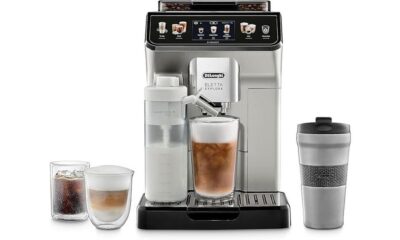
 Espresso Machines Reviews2 weeks ago
Espresso Machines Reviews2 weeks agoDeLonghi Eletta Explore: A Comprehensive Review [2025]
-

 Espresso Machines Reviews3 weeks ago
Espresso Machines Reviews3 weeks agoILAVIE 20 Bar Espresso Machine Review (2025)
-

 Espresso Machines Reviews3 weeks ago
Espresso Machines Reviews3 weeks agoSUMSATY Espresso Machine Review (2025)
-
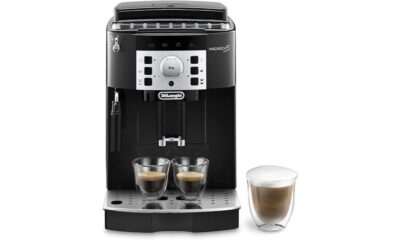
 Espresso Machines Reviews2 weeks ago
Espresso Machines Reviews2 weeks agoDeLonghi Magnifica S ECAM22.110.B Review: A Coffee Lover's Dream [2025]
-
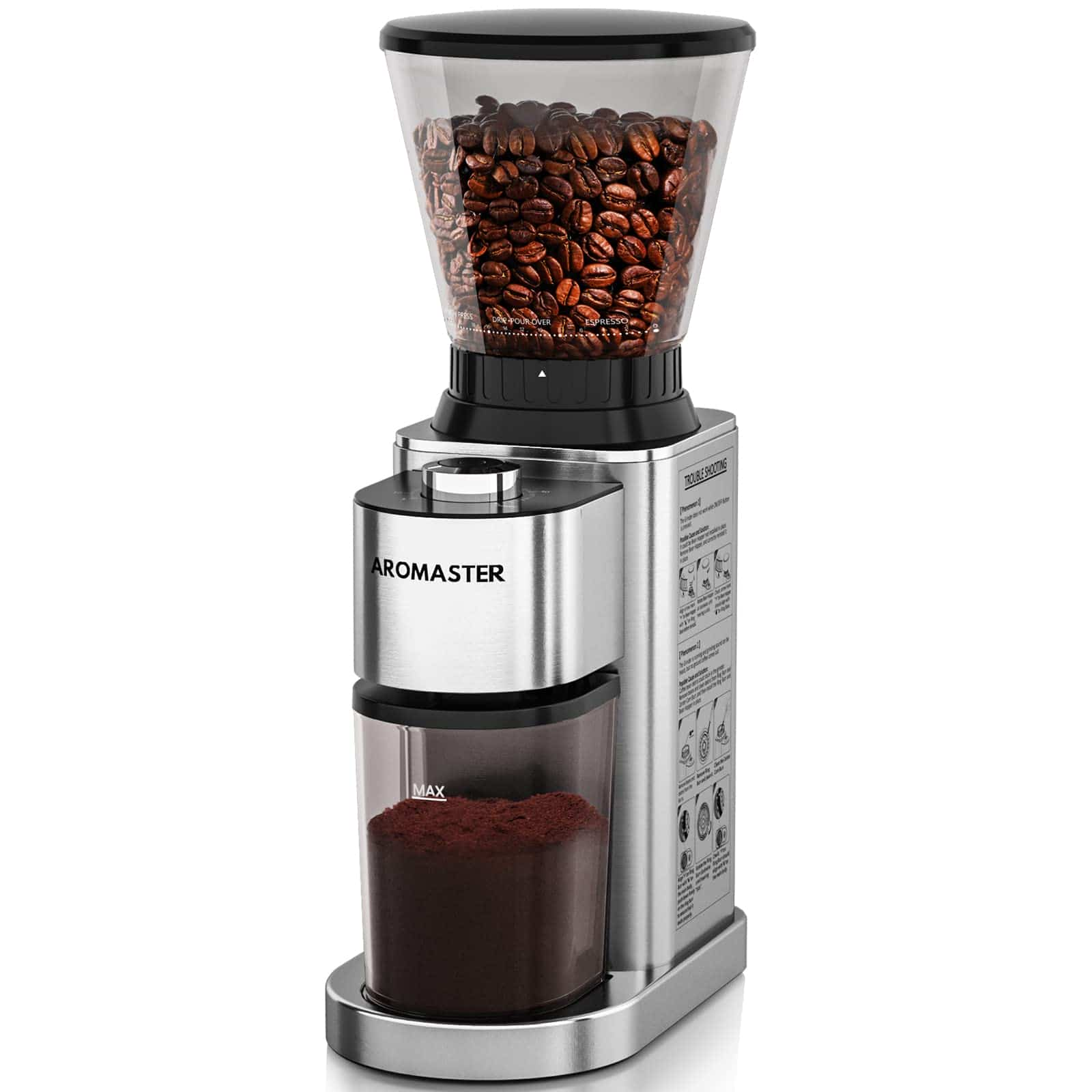
 Coffee Grinders Reviews3 weeks ago
Coffee Grinders Reviews3 weeks agoAromaster Burr Coffee Grinder Review (2025)
-

 Espresso Machines Reviews3 weeks ago
Espresso Machines Reviews3 weeks agoMAttinata Espresso Machine Review (2025)
-
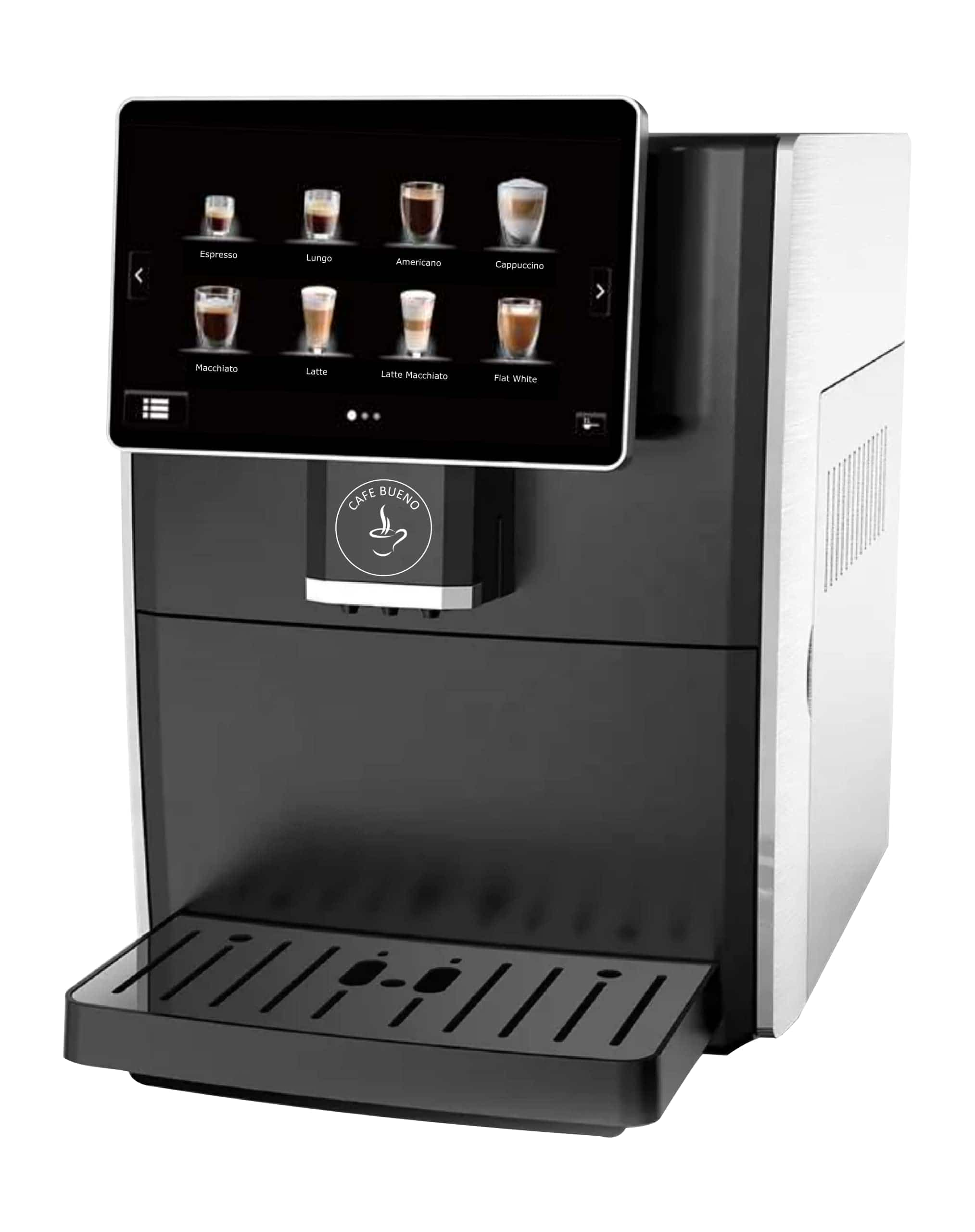
 Espresso Machines Reviews3 weeks ago
Espresso Machines Reviews3 weeks agoCafe Bueno Super Automatic Espresso Machine Review (2025)
-
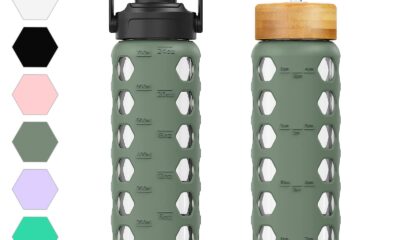
 Cappuccino Oracle Selected Reviews3 weeks ago
Cappuccino Oracle Selected Reviews3 weeks agoBest Glass Water Bottles for Eco-Friendly Hydration [2025]







